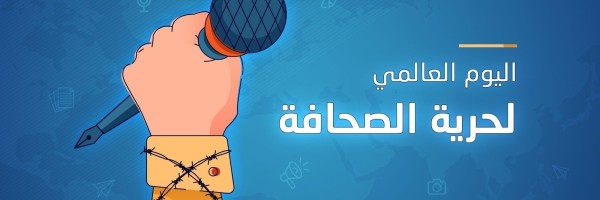The United Nations has designated 6 February of each year as an International Day of Zero Tolerance for Female Genital Mutilation (FGM), with the aim of raising awareness and intensifying efforts to end the practice. FGM, also known as ‘female circumcision’ or ‘cutting’, is widely practised in various countries of the world, including in the Middle East and Africa. The UN aims to eradicate it by 2030, and is accelerating efforts to achieve this goal.
FGM is seen as a traditional religious custom in some cultures. The term comprises any injury or partial or total removal of the external female genitalia, or other injury to the female genital organs for non-medical reasons. It is considered a crime, and a form of discrimination against women, just as for the removal or mutilation of any other organ of a woman’s body. It is recognised as a violation of the human rights of girls and women, and as a form of violence against women.
According to the World Health Organisation (WHO), FGM has no health benefits, and on the contrary can cause both immediate and long-term harm, depending on the type of cutting carried out. Immediate complications can include severe and ongoing genital pain and tissue swelling; loss of the membrane protecting against bacteria and germs, leading to severe inflammation and liability to infection; and in some cases severe and uncontrollable bleeding that may lead to a girl’s death.
In the long term, FGM can cause women chronic and increasing health problems such as urinary tract problems, painful urination, and constant inflammation giving rise to vaginal discharge and itching, as well as painful menstruation and difficulty passing menstrual blood. It may interfere with women’s enjoyment of sexual intercourse by making it painful, or in some cases causing a loss of sensation in the clitoris.
The problems become even worse with childbirth, as women who have undergone FGM may suffer difficulties in delivery and complications such as excessive bleeding, the need for caesarean section, and even death or damage to mother and child. The experience of FGM can also have a negative psychological effect on women, causing problems such as depression, post-traumatic shock, and fear of marriage and sexual intercourse.
There are no nationwide statistics on the extent of FGM in Saudi Arabia, but small-scale studies have found it to exist among women and girls from both indigenous and immigrant communities. A 2016-17 study from Jeddah found that 18% of women and girls surveyed had undergone FGM, and the majority wanted it to stop, while a 2018 study based in the Hali region on the western coast estimated prevalence within that survey sample at 80%, with the cutting carried out in nearly all cases by doctors.
In Saudi Arabia there is no specific law that criminalises FGM. The 2014 Child Protection Law guarantees children “the right to protection against all forms of abuse or neglect” (Article 6), but although its definition of ‘abuse’ includes “exposing a child to physical harm or injury” or to “maltreatment which may cause psychological harm or harm to his/her health”, FGM does not feature among the 14 recognised types of abuse or neglect listed, nor is it covered by the various prohibitions set out in the legal text.
The Saudi authorities therefore pursue the issue only very rarely, such as when scandal arises over a particular case in which a girl suffers such serious physical harm that she requires hospital treatment. For example, in the case of one little girl, in the southern Saudi region of Asir in 2020, what triggered intervention by the authorities was not the fact that her parents had had her cut but “the physical and psychological harm she suffered” when the procedure was carried out “at home in a primitive manner”. A Saudi newspaper reported that the relevant authorities, from the Public Prosecution to the regional governor of Asir, issued urgent instructions for “the necessary measures” to be taken under the Child Protection Law, but did not say what those measures were or whether they had actually been implemented. It was said that the parents had been unaware of the potential harmful consequences of the procedure, and that as part of the official response the local branch of the Ministry of Islamic Affairs instructed all mosques in Asir to tell their preachers to discuss the health risks of “this custom” in their Friday sermons, and advise families to avoid it.
Normally, however, unless circumcision or cutting causes a victim obvious and extreme harm needing hospitalisation, it will be disregarded and ignored by Saudi government agencies.
Meanwhile, the Saudi authorities set no clear limits on what guardians can and cannot do under the male guardianship system, and government bodies normally take a lenient view if a dependent son or daughter suffers some crime or injury at the hands of their parents, such as domestic violence, which disproportionately affects girls and women. The Saudi authorities have failed to tackle this issue decisively, making the UN’s efforts to stamp out the practice of FGM all the harder, by limiting women’s ability to refuse and report cases of FGM occurring within the family.
Custom and tradition are another factor behind the widespread nature of FGM practices, which are often handed down from older generations. Many of those who practise it as a matter of custom and tradition are unaware of the harm it does, believing it to have benefits in terms of health, cleanliness and chastity. When someone refuses to carry out such a practice in a community setting where it is accepted, they usually come under great social pressure to agree to it, due to the powerful influence of custom and tradition. Likewise, the family has an important role in deciding on FGM procedures, and it is particularly hard to escape fathers’ extensive authority over their children, thus exacerbating the problem and lessening the chances of tackling it.
Religion, too, plays an important part in shaping social attitudes and behaviour in Saudi society, which means that the opinions and pronouncements (fatwas) of clerics have a major influence over FGM practices.
Al-Azhar University in Cairo, one of the Muslim world’s most prestigious authorities, regards female circumcision as harmful to both women and society and without justification in Sharia law, and finds that perpetrators may be punished. Fatwas issued by clerics on the subject include one from the Grand Mufti of Egypt on 10 November 2021, affirming that the custom is to be considered haram (unlawful) and a crime.
Yet Saudi Arabia’s official religious institutions continue to regard it as “a natural practice, and commendable”, according to a fatwa from the Permanent Committee for Scientific Research and Ifta’ (the issuing of fatwas), Saudi Arabia’s principal official body for issuing religious rulings. Fatwas such as that of the former Mufti of Saudi Arabia, Abdulaziz Bin Baz, have done a great deal to perpetuate the practice: he issued a formal ruling that female circumcision is “commendable” and “a custom”.
ALQST’s researchers recently interviewed a number of young Saudi women who have undergone FGM for their perspectives on the current trends regarding this pernicious ‘custom’. One told us that she is becoming less and less aware of it in her community. She thinks the pressure on parents to have their daughters cut often comes from elderly grandmothers, and the reason the practice is starting to die out is that these elderly women are no longer passing on the art of female circumcision.
Another woman we spoke to said that in southern Saudi Arabia FGM is widely practised, and that both she and her sisters, older and younger, had been victims. She recalled that her own circumcision had taken place at a private clinic in Jeddah, western Saudi Arabia, and involved partial excision of her clitoris, with the result that she now has only partial sensation in that part of her body.
She added that, where she lives, FGM is often carried out by women claiming to be medical specialists in female circumcision. Some of her relatives have recently started having FGM done in private medical centres, without any official oversight and without any effective laws to stop them. She sees the situation where some women don’t want to circumcise their daughters but come under societal pressure through their husbands or elderly grandmothers.
ALQST recommends the following actions as essential for ending the practice of female genital mutilation (circumcision) in Saudi Arabia:
- Legislation should be passed to criminalise the practice, with harsh penalties both for the institutions that provide or offer such services and for the families and relatives who force their girls and young women to undergo FGM.
- Small-scale studies have been carried out, but extensive field research needs to be done to establish reliable figures on the true extent of the problem.
- A telephone hotline needs to be provided for reporting cases of FGM, to ensure that the authorities respond swiftly and appropriately and provide girls with the necessary protection.
Further reading
- My body is my own: Claiming the right to autonomy and self-determination. UNFPA State of World Population 2021, United Nations Population Fund. Available at https://www.unfpa.org/sites/default/files/pub-pdf/SoWP2021_Report_-_EN_web.3.21_0.pdf
- FGM: A global picture. Equality Now. Available at https://www.equalitynow.org/fgm-a-global-picture/
- FGM/C in the Middle East region (annotated map). Equality Now. Available at https://d3n8a8pro7vhmx.cloudfront.net/equalitynow/pages/2318/attachments/original/1584134248/FGM-C_in_the_Middle_East_Region.pdf?1584134248



